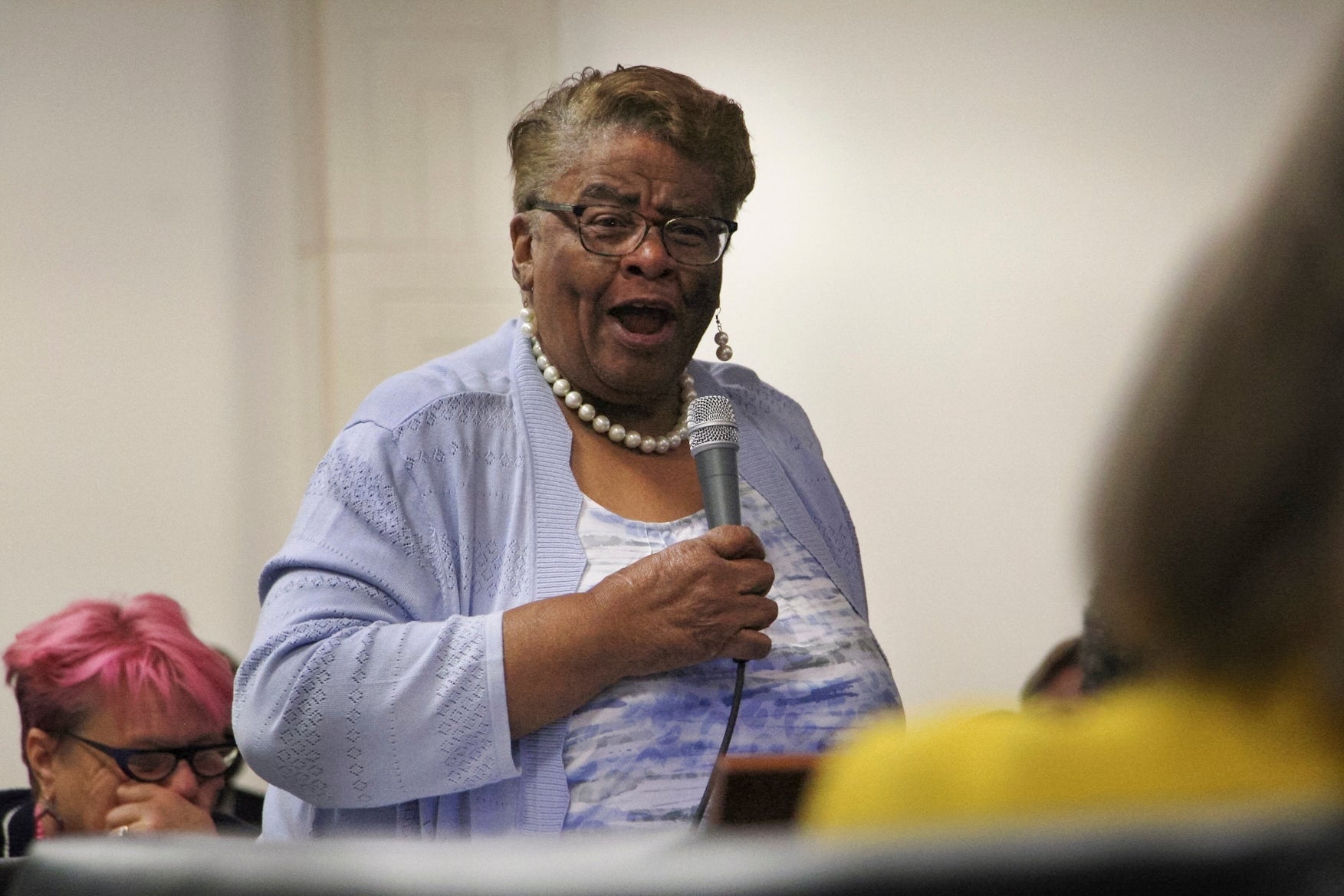North Carolina House passes bill limiting racial teachings
North Carolina’s Republican-controlled House has advanced a previously vetoed proposal to restrict how teachers can discuss certain racial topics that some lawmakers equate to “critical race theory.”

Your support helps us to tell the story
From reproductive rights to climate change to Big Tech, The Independent is on the ground when the story is developing. Whether it's investigating the financials of Elon Musk's pro-Trump PAC or producing our latest documentary, 'The A Word', which shines a light on the American women fighting for reproductive rights, we know how important it is to parse out the facts from the messaging.
At such a critical moment in US history, we need reporters on the ground. Your donation allows us to keep sending journalists to speak to both sides of the story.
The Independent is trusted by Americans across the entire political spectrum. And unlike many other quality news outlets, we choose not to lock Americans out of our reporting and analysis with paywalls. We believe quality journalism should be available to everyone, paid for by those who can afford it.
Your support makes all the difference.North Carolina’s Republican-controlled House passed a previously vetoed proposal Wednesday to restrict how teachers can discuss certain racial topics that some lawmakers have equated to “ critical race theory.”
The House voted 68-49 along party lines for legislation banning public school teachers from compelling students to believe they should feel guilty or responsible for past actions committed by people of the same race or sex.
United in their opposition, House Democrats challenged Republican claims that the bill would reduce discrimination and argued that a comprehensive history education should make students uncomfortable.
Republican seat gains in the midterm elections give them greater leverage this year to override any veto by Democratic Gov. Roy Cooper, who successfully blocked a similar proposal in 2021 and urged legislators this month in his State of the State address, "Don't make teachers re-write history.” But Republicans, who are one seat short in the House of a veto-proof supermajority, will likely need some Democratic support for the measure to become law.
North Carolina is among 10 states currently considering such proposals, according to an Education Week analysis. Eighteen others have already limited how teachers can discuss racism and sexism in the classroom.
Gaston County Republican Rep. John Torbett said the proposal, which now heads to the Senate, will prohibit schools from endorsing controversial concepts, including that one race or sex is inherently superior.
"This great education state must have an educational system that unites and teaches our children, not divides and indoctrinates them," said Torbett, the bill's sponsor.
Several Democrats, including Reps. Rosa Gill of Wake County and Laura Budd of Mecklenburg County, raised concerns that the language is vague and does not outline clear boundaries for teachers. Budd said this “massive failure” places unnecessary pressure on teachers who may feel like they need to stifle productive classroom discussions to keep their jobs.
“The bill, on its face, is the obvious attempt to micromanage from the General Assembly into the classrooms," she said during floor debate. "It's overreach and will have a chilling effect on teachers and educators in curtailing what they think they're allowed to teach.”
Republican lawmakers in committee had applauded the measure for “banning" critical race theory, a complex academic and legal framework that centers on the idea that racism is embedded in the nation's systems and institutions that perpetuate inequality.
The bill does not explicitly mention the framework, but it prohibits teaching that the government is “inherently racist” or was created to oppress people of another race or sex. Its language mirrors a model proposal from Citizens for Renewing America, a conservative social welfare group founded by a former Trump administration official to rid the nation's schools of critical race theory.
Republicans nationwide have spun the phrase into a catchall for racial topics related to systemic inequality, inherent bias and white privilege. While many K-12 public schools teach about slavery and its aftermath, education officials have found little to no evidence that critical race theory, by definition, is being taught.
North Carolina schools would also be required under the bill to notify the state's Department of Public Instruction and publish information online at least a month before they plan to host a diversity trainer or a guest speaker who has previously advocated for the beliefs restricted by the legislation.
Cary mother and activist Michelle O’Keefe was among several parents who testified against the bill in a Tuesday committee meeting. O’Keefe said she doesn’t want her young child sheltered from learning about racism and other atrocities in history, as long as those lessons are age-appropriate.
“The best way to keep history from repeating itself,” she said, “is to know the history.”
Another mother worried she could be banned from speaking at her child’s school career day because she has a documented history of speaking out against social injustices. Democratic Rep. Julie von Haefen of Wake County expressed a similar concern that she might no longer be able to substitute teach because of her record on racial justice issues and gender equality.
___
Schoenbaum is a corps member for the Associated Press/Report for America Statehouse News Initiative. Report for America is a nonprofit national service program that places journalists in local newsrooms to report on undercovered issues.